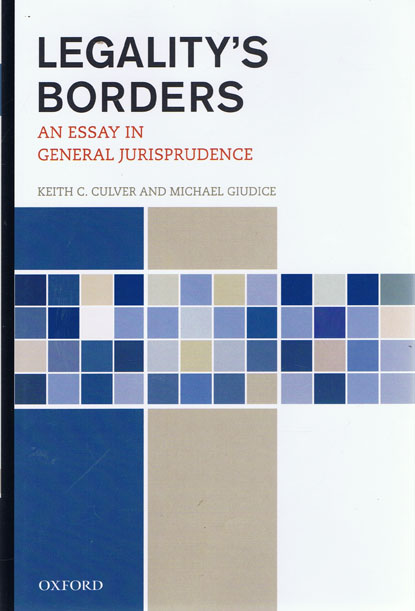
English-speaking jurisprudence of the last 100 years has devoted considerable attention to questions of identity and continuity. H.L.A. Hart, Joseph Raz, and many others have sought means to identify and distinguish legal from non-legal social situations, and to explain the enduring legality of those typically dynamic social situations.
Focus on characterization of legality associated with the state, the most prominent legal phenomena available, has led to an analytical approach dominated by the idea of legal system and analysis of its constituent norms. Yet as far back as Hart's 1961 encounter with international law, the system-focussed approach to legality has experienced moments of self-doubt.
From international law to the new legal order of the European Union, to shared governance and overlapping jurisdiction in transboundary areas, what at least appear to be instances of legality are at best weakly explained by approaches which presume the centrality of legal system as the mark and measure of social situations fully worthy of the title of legality. What next, as phenomena threaten to outstrip theory?
Legality's Borders: An Essay in General Jurisprudence explains the rudiments of an inter-institutional theory of law, a theory which finds legality in the interaction between legal institutions, whose legality we characterise in terms of the kinds of norms they use rather than their content or system-membership. Prominent forms of legality such as the law-state and international law are then explained as particular forms of complex agglomeration of legal institutions, varying in form and complexity rather than sheer legality.
This approach enables a fundamental shift in approach to the problems of identity and continuity of characteristically legal situations in social life: once legality is decoupled from legal system, the patterns of intense mutual reference amongst the legal institutions of the law-state can be seen as one justifiably prominent form of legality amongst others including overlapping forms of legality such as the European Union. Identity over time, on this view, is less a fixed set of characteristics than a history of intense mutual interaction of legal institutions, comparable against similar other agglomerations of legal institutions.